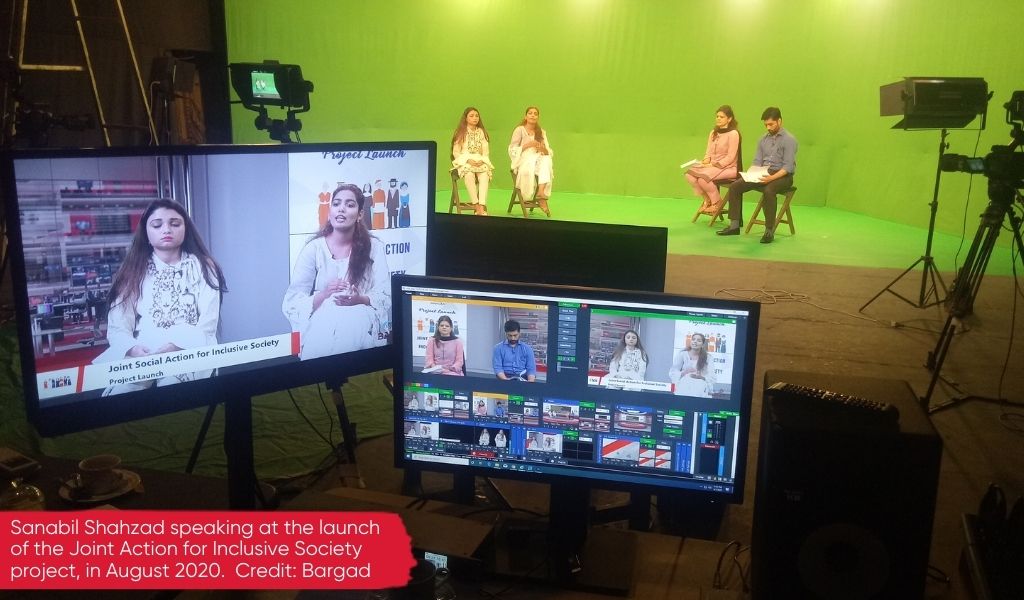Religious hate-speech and exclusion are an everyday experience for religious minorities in Pakistan. Over the past year, the youth development organisation Bargad, funded by Minority Rights Group (MRG) and part of the IDS-led CREID programme, has worked with nearly 100 young people from both majority and minority religious communities to document, raise awareness and challenge hate speech.

Bargad conducted focus groups in order to develop a hate speech lexicon to monitor online hate speech, and to develop a training module for young people in how to counter hate speech. Bargad also recruited members of minority religious communities and supported them to publish articles about their personal experiences of religious exclusion, which were picked up by local mainstream media and circulated on social media.
Why this is important
In Pakistan, religious minority communities are frequently subjected to hate speech – both in the public sphere, such as on the streets, in education centres and in places of employment, where derogatory words used for minority communities are embedded in routine language, and also online.
According to focus group participants, the problem is so pervasive that it’s largely accepted both by victims and aggressors and neither group speaks about the prevalence of hate speech. Fear is a big factor: if an individual choses to challenge hate speech levelled against them, such an argument is perceived as a potential threat which can quickly escalate into a mob attack against that individual.
The question of how to break the culture of silence on religious hate-speech and exclusion is set against emerging trends within social media, whereby divisive and heated communication pits different communities against one another. The pervasiveness of religious exclusion in the daily lives of minority members is underreported, and victims’ voices are largely unheard. The challenge is to highlight the severity of the issue of religious exclusion and to amplify the voices of the religiously marginalised.
Impact
This project aimed to surface the forms and frequency of religious hate speech in Pakistan while at the same time amplifying the voices of religious minorities, allowing them to describe the devastating effects of the exclusion they experience. Bargad trained and mobilised 22 youth volunteers in Lahore and Karachi to conduct 11 focus group discussions and 1 student dialogue so far with 74 religious minority members across Pakistan.
Participating youth belonged to different religions, including Christianity, Hinduism, Sikhism and Shia Islam. The issue of hate speech was explored through questions posed to gauge the understanding, experiences and opinions of participants on hate speech and religious exclusion. A majority of participants reported personally experiencing stigma and hate-speech on numerous occasions. One of the participants had personally witnessed a mob attack in Nankana Sahib and had videos of the incident.
Sanabil Shahzad, a Christian student at Minhaj University, and Sandesh Kumar, a Hindu student at Punjab University, were selected to write their stories of exclusion while employed as part-time interns at Bargad. The stories described how they’ve are frequently stereotyped because of their religion and how they regularly experience pressure to convert to Islam. The articles were published in Nayadaur.Tv in Urdu in May 2020 (Nayadaur is a leading bilingual news website that publishes and produces progressive material in Urdu).
Since the publication of their articles, both students have been invited by various organisations to serve as panellists and speakers. For example, Sanabil spoke as a panellist at launch of the project “Joint Action for Inclusive Society” held on 7 August 2020. Another glimpse of the impact of these stories can be gauged by the fact that both students’ articles have been shared approximately 2,000 times on Facebook.
Their stories have influenced other youth to join the call for religious inclusivity, complementing the narrative of rights-based communications with personal stories to pave the way for inclusive development in Pakistan.